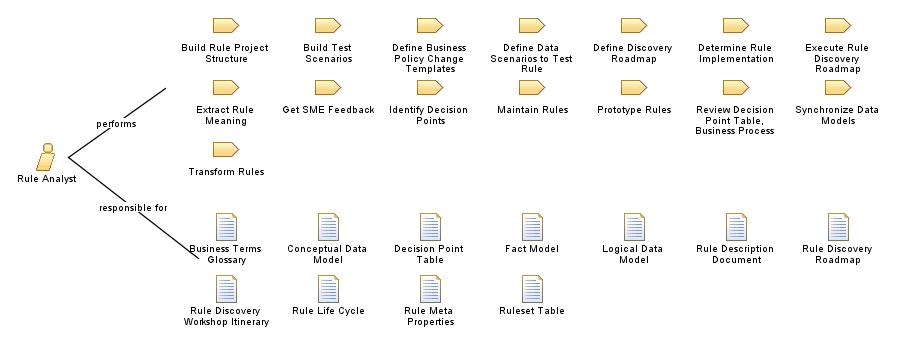|
A Rule Analyst is a special business analyst with a strong knowledge of how a business rule application runs and how to
do rule programming. In his day to day work he is helping the business team to turn business policy into rules,
but also helps to clearly define the business view, or fact model, for developers to implement.
He acts as a bridge between the business side and technical side of an application, translating business policy into a
formal specification (model) for developers, then validates it with the different business managers. With the IT
developer he/she will share the definition of the vocabulary used in rules, then he captures, writes, and organizes
business logic into business rules.
In rule-based project his direct involvement includes at least the following activities
-
Identifies business sponsors for issues relating to business rules.
-
Maintain traceability from the business policies to the executable business rules.
-
Assists business in identifying existing business rules.
-
Researches the meaning and origin of the business rules
-
Create rule templates for rule writers and analyst
-
Analyze rules for completeness, correctness, optimization (from a logical, not performance, perspective)
-
Identify how rules are used in processes that implement business policies
-
Ensure the quality of the business rules
-
Ensure that consistent terminology is used in the business rules in order to build a common vocabulary and a domain
data model
-
Analyze business rules to identify conflicts, redundancies
-
Ensure consistency of business rules across functions, geographies and systems
-
Conduct impact analysis for revision or replacement of business rules
-
Integrate new or revised rules into existing rule set
-
Make recommendations for business rule changes based on business knowledge
-
Facilitate resolution of business rules issues
-
Act as consultant for the project team
-
Act as a liaison between business and IT
|

